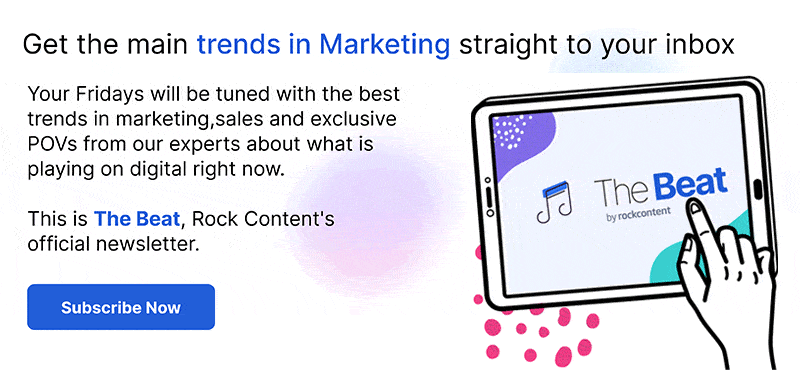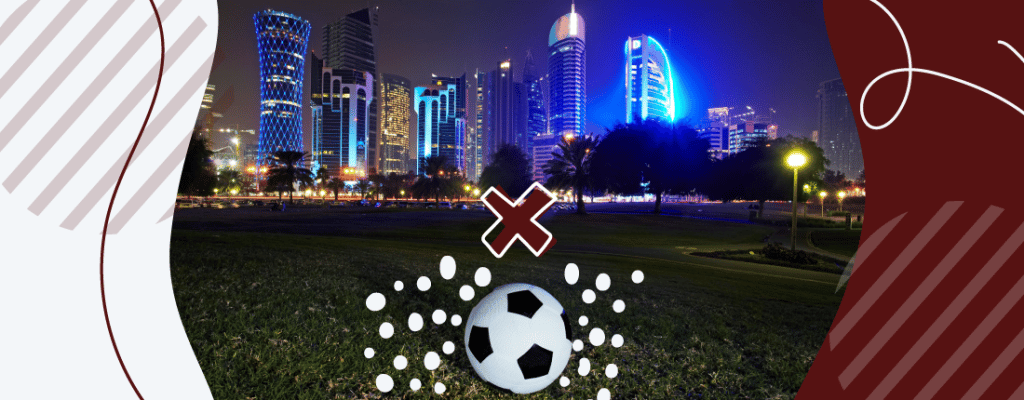I’m writing this article while I watch the match between France and Australia in the groups phase at World Cup 2022. I felt that I needed some inspiration, since I’m not a big fan of soccer — but I’m definitely a fan of big events that bring together all communities and cultures.
These global events are huge opportunities to talk about something really important for brands: purpose.
The announcement of Qatar as host of World Cup 2022 happened in 2010. Since then, the discussion about the country has started and it reflects the controversies of today.
Three main topics are highlighted by critics about the first country from the Middle East to host the most important sporting event: women restrictions, discrimination against LGBTQIAP+ community and rights of immigrant workers.
You may not like it, but soccer and the World Cup have a social purpose: this kind of event shares cultures, moves the economy and entertains the audience. With this huge impact it is obvious that brands cannot be left out of the party.
However, more than ever consumers have the desire to feel represented through causes your brand supports — we highlighted this topic with a lot of data in this article, and we highly recommend you also read it.
And it’s here that things get complex: how to join your brand purpose with that of the World Cup’s if it seems that they are going different ways?

Do the brands have a real purpose in a World Cup hosted in Qatar?
When consumers and important social organizations started questioning the brands who are sponsoring (or not) the World Cup, all the answers demonstrate that any choice has a purpose.
For some, being a sponsor of this event, at this societal moment, in this country is a great combination to promote positive changes from within. For others, the decision to not sponsor is a way to also promote positive changes, making it clear that there are no investments for places that do not respect human rights.
All brands, even if they are small or that will indirectly use the event in some special action to leverage their sales, have a purpose with the World Cup in Qatar.
So, in this case, we need to look again. Let’s move to the midfield, team!
Purpose is not enough
The scenario with so many opinions and points of view shows me one thing: most brands didn’t prepare for reality. Among the sponsors are big companies, such as Coca Cola, Adidas, Visa, and others.
In my personal perception, most of them are running the ball back and forth without scoring goals (pardon the pun). Why?
For example, recently Budweiser was surprised with the decision to restrict beers around the stadiums — and here we are not talking about a social or human rights point, just alignment between organization of events and sponsors. In the worst cases, huge sponsors don’t take just any action to cause real impact.
According to Reuters’ Agency, some human rights organizations stated in July that they wrote to partners and sponsors of the World Cup and just four of them (Budweiser, Adidas, Coca-Cola, and McDonald’s) indicated their support for the situation of workers that were constructing buildings for the event.
For this reason, purpose is not enough. All brands, sponsors or not, have a huge opportunity to change the view concerning the rights of a lot of consumers during the next few weeks. And this is not to be achieved only through messages, placement notes and confidence in FIFA.
Play beyond the field
Soccer, and many others sports, still has a long way to go in the fight against discrimination of women, LGBTQIAP+ community and others underrepresented groups. When this takes place it is a huge culture shift against human rights and freedom of speech. This could be even worse — as seen in the challenge faced by the press in World Cup 2018 in Russia, or economic loss in 2014 at Brazil.
Prejudices and social vulnerabilities are in all places (and I know that in certain places the setbacks are even worse).
It is also important to direct and measure our actions to the right places and towards the right actuators.
The purpose of positioning and acting cannot be done to condemn a culture or a population. Brands must understand that the challenges are structural and cultural. That is, in most cases these challenges are validated and supported by governments and major players, and the individual inserted in this context is just the tip of the iceberg.
The role of a brand in these moments is to act structurally. For example, to require policies from FIFA in contract, give financial support for organizations that fight for a particular cause in relation to the challenges of the country, and gain visibility to promote awareness for their customers.
Would you like some examples? Duolingo, an application for learning new languages, created an amazing marketing content to announce their support of a small amateur team called “Qatar” from a community in Brazil, and also connected the financial support with the maintenance of the team’s learning journey in the app.
Here, at Rock Content, we also created an interactive idea generator to help agencies and customers to use the World Cup in their favor. With this opportunity, we sought guidance from our diversity expert, David Reis, and we decided to share some tips about how to use the tool’s recommendations considering diversity, equity and inclusion, and not just promote content without critical thinking.

Less words, more actions
It’s not about being or not being a sponsor, nor to be on the right or the wrong side. The World Cup in Qatar and all these discussions show brands that it is about promoting real changes.
And the brands that act with purpose have a lot to achieve. According to Global Consumer Pulse Research, a study done for Accenture in 2019, Generations Y and Z can be called Generation P (for Purpose) — and represent almost 5 billion people.
Let’s take a look at the World Cup and other big events and keep in mind: there’s always something to be done that will positively impact the world and promote more inclusion for all. What is my company’s strategy to score at least one goal in this match?
Do you want to continue to be updated with Marketing best practices? I strongly suggest that you subscribe to The Beat, Rock Content’s interactive newsletter. There, you’ll find all the trends that matter in the Digital Marketing landscape. See you there!







